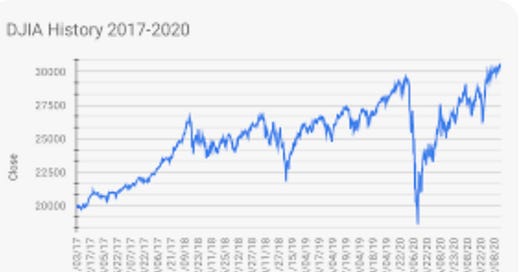On Ascertaining the Lesser of Two Evils
The irrational need to admire a leader creates a tremendous amount of trouble for both sides.
Because humans are far more motivated by emotional attachments than reason, they feel an irrational desire to admire their leaders instead of accepting that every politician is flawed. People WANT to admire their preferred candidate, which causes them to overlook their candidate's flaws and to focus entirely on the flaws of the opposing candidate.
This creates a huge amount of conflict and turmoil during a U.S. presidential election, when the people are asked to make an either/or choice. When you tell your friends and family who you are voting for, you are likely to hear all manner of objections to your choice based on the various flaws—real, perceived, exaggerated, and fabricated—of your preferred candidate. You, in turn, will reply by pointing out the innumerable flaws of their preferred candidate, which they have doubtless overlooked.
It seems to me that the only rational approach is to make a diligent effort to ascertain the lesser of two evils. Of all people in the world, we Americans are probably the most ill-equipped to ascertain the lesser of two evils, because with our prosperity (and debt financing of everything) we have gotten out of the habit of making daily sacrifices.
Making a sacrifice involves recognizing the harsh reality that we cannot gain something without giving up something else. Around the age of twelve I became a voracious reader, and the book that affected me the most during this impressionable time was A Day No Pigs Would Die, by Robert Newton Peck—a semi-autobiographical story about a poor Vermont farm boy at the turn of the 20th century. During an especially harsh winter after a bad harvest, he must come to terms with the fact that if his family is going to survive, he must sacrifice his beloved pet pig, Pinky, which he has lovingly raised since Pinky was a piglet. The climactic scene of the novel must surely be one of the harshest and most poignant in all of young adult literature—a terrifying expression of the idea of sacrifice.
Much of America’s asset-owning class—that is, people who own real estate and stocks—have gotten into the habit of regarding the stock market as a barometer of American health. If the stock market is performing well, they perceive everything to be just fine. In an inflationary environment, this gives them a completely different view of American life than that of wage earners and salaried employees who do not possess significant assets.
In March 2020, the stock market briefly crashed, at which point the U.S. Treasury and Federal Reserve flooded the financial system with cash. Though the real economy—the labor market and supply chains—remained horribly impaired, making life hell for small business owners, the flood of cash turbocharged the stock market, especially large cap tech stocks that benefitted from the huge push of all American life, interactions, and transactions to go online.
Had I been fully invested in the stock market—and had I not opened a new restaurant in January 2020—I am confident I could have totally ignored the entire pandemic and taken refuge on my local golf course or at my family’s cabin in Colorado. Here in Dallas, I know a lot of guys who did just that.
If you have been passively coining money in the stock market for the last four years, you have been in a good position to overlook all of the bizarre and disturbing things that have been emanating out of Washington. I am frequently reminded of this when talking to old friends and family members who think that everything in the American Republic is fine. They genuinely believe that Donald Trump is a mere rabble rouser who is stirring up resentment, division, and even hate in order to get elected.
When I tell them that I am voting for Trump because I have carefully ascertained that—for all of his flaws—he is the lesser of two evils, they stare at me with disbelief. They aren’t even disturbed by the bizarre way in which President Biden was shuffled off after the first presidential debate and that we currently have no idea who is running the country. One old friend in California had no idea that the Biden White House ran a massive censorship operation that was revealed in the Twitter Files.
They cannot ascertain the lesser of two evils because they have seen no evil for the last four years.






I fear that no matter who is elected, or, I believe, more accurately, selected, things will get worse for most Americans and for folks in the rest of the world. In 2012 an academic study learned that no matter who is president, and despite the will of the people, the will of the sociopathic oligarchs will prevail. I believe that is even more true today. I also believe that presidential election campaigns too often serve as a distraction, trusting that one candidate or other will actually work to improve our lives. Therefore, divide and conquer prevails, and very little independent thinking and/or organizing take place.
I don't argue with Trump haters. I simply say, you're not going to like Communism, if you survive their wholesale slaughter to depopulate the world to what they consider a manageable level.